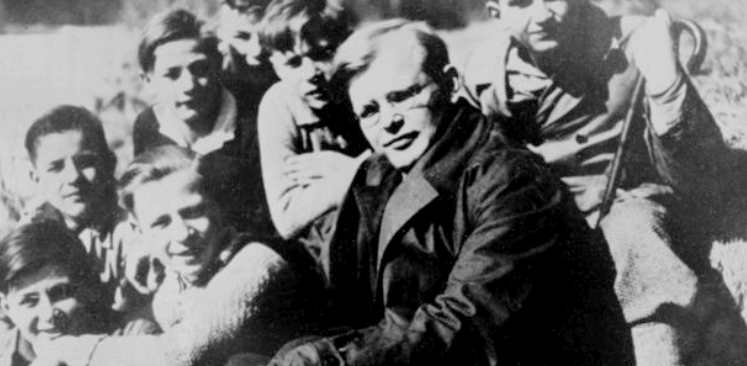Who is Dietrich Bonhoeffer? Information German Protestant pastor and theologian about Dietrich Bonhoeffer biography, life story.

Source : wikipedia.org
Dietrich Bonhoeffer, (1906-1945), German Protestant pastor and theologian. Bonhoefîer’s impact on contemporary theology is traceable both to his bold career, ending in a martyr’s death at the age of 39, and to the orig inality of his ideas. He was born in Breslau, Germany, on Feb. 4, 1906. Immediately after Adolf Hitler became chancellor of Geımany in 1933, BonhoefFer, then a lecturer in theology at the University of Berlin, became identified as an opponent of Nazism. He soon entered upon a two-year pastorate in London but maintained his ties with the Confessing Church in Germany and continued his activities in the ecumenical movement. In 1935 he returned to Germany to set up an underground theological school. Here he wrote Nachfolge (1937; Eng. tr. The Cost of Discipleship, 1948).
As Bonhoeffer’s life became obviously endangered, friends arranged for hini to lecture in the United States. But Bonhoeffer decided to return to Germany to share the struggle of the church. Between 1939 and 1943, although forbidden to speak in public or to publish, he continued to do secret work for the church and traveled to Switzerland and Sweden for com- munication with church leaders. On April 5, 1943, the Gestapo arrested and imprisoned him, first in Berlin, then in Buchenwald. His involvement in an attempt to kili Hitler on July 20, 1944, increased the peril to his life. On April 9, 1945, he was hanged at Flossenbürg.
During his confinement, Bonhoeffer wrote Widerstand und Ergebung (1951; Eng. tr. Letters and Papers from Prison, 1953), sugglsting the reconstruction of Christian thought that he hoped to make after the war, and calling for a “religionless Christianity.” Mankind, he argued, had come “of age” and no longer needed religion, which is only a deceptive garment of true faith. He sought to acknowledge Christ, not as “an object of religion” but as “in truth the Lord of the World.” In the Scriptures, Bonhoeffer found the basis for a “Christian worldiness,” quite different from “religion,” which retreats from the world into the inward life and metaphysical speculations. The Chris¬tian, he wrote, is identified not by his religious acts but by his “participation in the suffering of God in the life of the world.”
Another important work, published posthumously, is Ethik (1949; Eng. tr. Ethics, 1955). Partly because of their unfinished nature, Bon¬hoeffer’s final writings have exerted a tantalizing power över other thinkers and have given the impulse to majör movements in theology.
mavi